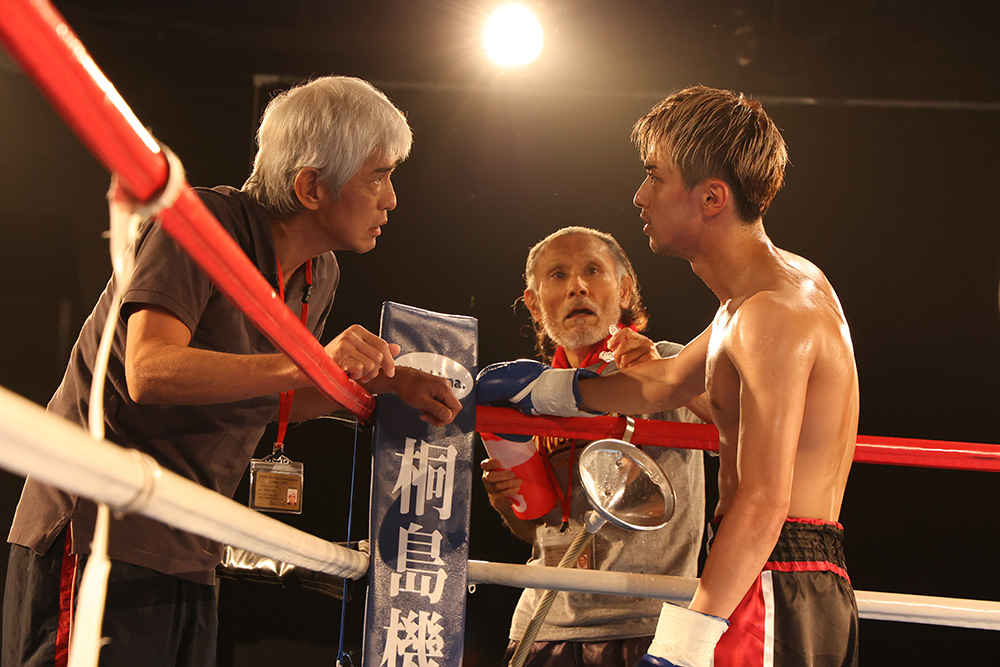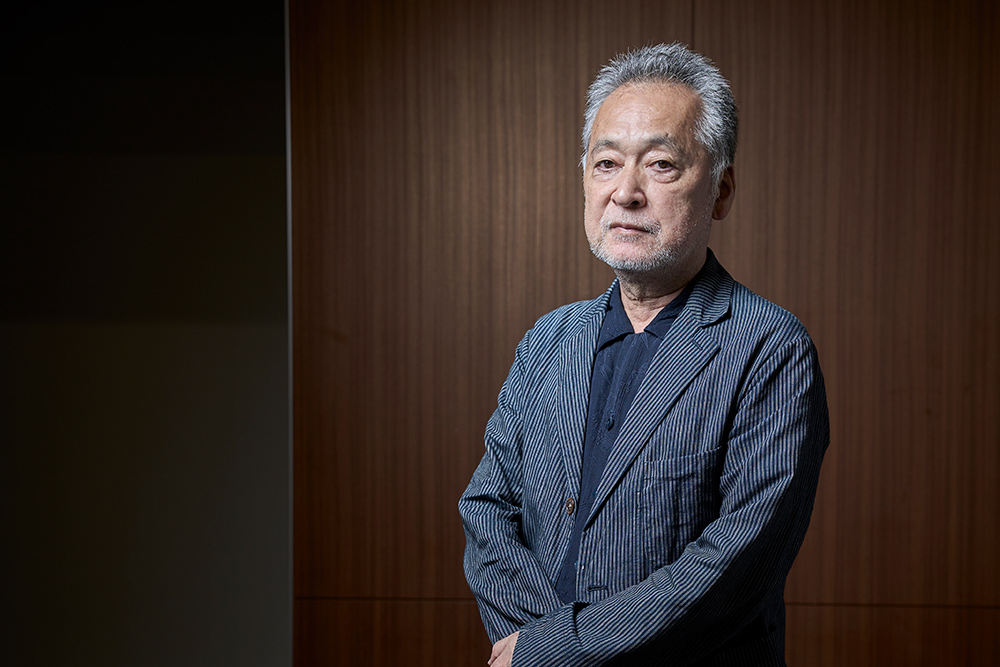!["Falling in Spring" Directed by Takahisa Zeze Match scene that creates drama [Director's Interview Vol.343]](https://cinemore.jp/images/e82a8c4576aaf90c832ee6a081ed81816ea3abbd112f67ce5d9137a35d15b0e9.jpg)
"Falling in Spring" Directed by Takahisa Zeze Match scene that creates drama [Director's Interview Vol.343]
What I am concerned about during filming is the sense of distance from the actors.
Q: Many of the staff members are working together for the first time this time, including the cinematographer Kohei Kato and the music composer Takuto Tanaka. What was it like working with them?
Zeze: That has a lot to do with producer Hideki Hoshino's intentions. He said he wanted to do it with new members, not his usual style. (Sato) It's not like Koichi-san and Ryusei, but there are themes like oldness and youth, and in that sense it was good to work with new people. Kato-san is much younger than me, so I think we had good chemistry. It was refreshing to see the sense of distance of the camera to the person and wondered, ``This is how you shoot.''
Q: Do you have a favorite picture of the director? Do you tell the photographer about that, or do you leave it up to them?
Zeze: What I'm concerned about when filming is the sense of distance from the actors. It depends on where the camera is looking from, whether it's close to the person or from a distance, and the content of the play. I'm only concerned about whether to get close and take a wide shot, or take a long shot with a telephoto shot, but I don't really care about the angle of view. I'm really curious about the distance from which I photograph people's performances. The closer you get to the actor, the more authentic the actor's feelings will come out. On the other hand, if you take a photo from a distance, it becomes more objective. This way of seeing is clearly conveyed to the audience. How to capture the atmosphere and the current atmosphere of the scene is related to the distance of the camera.

“Spring Scatter” ©2023 Movie “Spring Scatter” Production Committee
Q: Director Zeze has been prolific for a long time, but it seems like his pace hasn't changed in recent years.
Zeze: I haven't set a particular pace. Actually, I haven't shot a single film this year. There are some years like that, so I don't have a particular decision in mind. I try to do the projects in the order they come in. Sometimes it doesn't fit well.
Q: Please tell us about your favorite movies and directors that have influenced you.
Zeze: I read Mr. Sawaki's book when I was in my late teens, and the movie that shocked me the most at that time was Kazuhiko Hasegawa's ` `Killer of Youth '' (1976). I thought that Japanese movies were amazing, and I felt that it was a new movie. The movies I saw when I was a teenager are the most influential.
Reserve “Spring Scatter” now ↓

Director: Takahisa Zeze
Born in 1960, from Oita Prefecture. Started making independent films while studying at Kyoto University. After making his debut with ``Extracurricular Class Assault'' (1989), he has worked on a variety of works, including feature films, documentaries, and television. Heaven's Story (2010) won the Critics League Award and the NETPAC (Best Asian Film) Award at the Berlin International Film Festival. ``Antokinoi nochi'' (2011) won the Innovation Award in the World Competition section of the Montreal World Film Festival. For the first part of the ``64-Rokuyon-'' two-part series (2016), he won the Japan Academy Award for Outstanding Director. Since then, he has continued to write works such as ``The Bride of 8 Years: A Miraculous True Story'' (17), ``Friends and Sins'' (18), ``Paradise'' (19), ``Ito'' (20), and ``To Those Who Were Not Protected'' (21). He has produced many popular works such as ``Tonbi'' and ``From Lageli with Love'' (22).
Interview and text: Fumio Koda
Editorial staff and writer for CINEMORE. My favorite movies are ``The Goonies'' and ``Indiana Jones and the Temple of Doom.'' My recent favorites are 4K digitally remastered classics by Akira Kurosawa and Yasujiro Ozu.
Photography: Kazunari Aoki
"Scattered in Spring"
Released on August 25th Distribution: Gaga
©2023 Movie “Scatter in Spring” Production Committee

